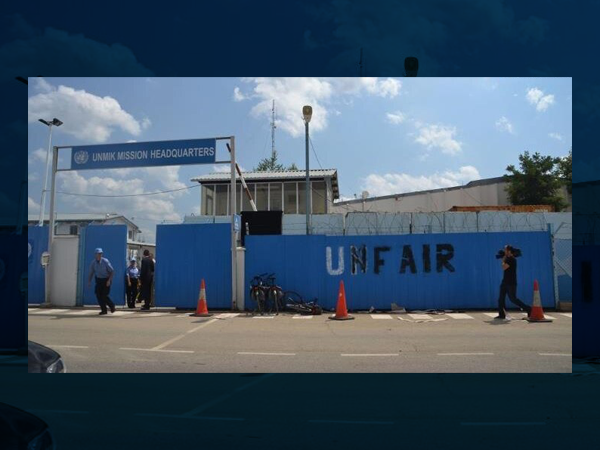Please join the Njegos Endowment for Serbian Language and Culture at Columbia University’s East Central European Center and the Harriman Institute for a lecture by Sandra Davidovic, doctoral candidate in International and European Studies at the University of Belgrade, accompanied by esteemed professor Susan Woodward (CUNY) as a discussant.
The process of privatizing socially owned enterprises in Kosovo, conducted under the auspices of the United Nations Interim Administration Mission in Kosovo (UNMIK), represents a unique case given the status of an internationalized territory, the system of agencies that have administered the process, and the fact that the process has unfolded in a post-conflict environment, within the area of operation of one of the largest and most comprehensive UN peacebuilding missions. Pursuant to the request of UNSC Resolution 1244 to engage in the economic reconstruction of Kosovo, the UNMIK administration resorted to privatization as a tool to attract investments, build up the private sector, and jumpstart a free market. However, UNMIK encountered difficulties in grasping the concept of socially-owned property, a unique feature of the Yugoslav economic system, and in identifying the structure of owners and creditors, thereby opening the floodgates to the problems caused by the transformation of ownership rights, ethnic discrimination, and poor economic results. The selection of a spin-off privatization model has, in particular, raised the question of the legal right of UNMIK to interfere with the property ownership structure, which has also highlighted a major disagreement among international actors involved in the process on the UNMIK jurisdiction in administering Kosovo’s property. Thus, the case opened numerous legal and political issues, deeply intertwined with the political process of resolving the dispute over Kosovo. Sandra’s analysis represents a multidisciplinary attempt to disentangle the political and economic tenets of the idea of liberal peace manifested in Kosovo’s internationally-led privatization. She argues for the importance of examining the phenomenon within the framework of post-conflict peacebuilding and state-building analysis since the conceptual foundation of the privatization in Kosovo agenda has been based in the ideas of liberal peace and state-building interventionism.
Speaker Biographies
Sandra Davidovic is a Ph.D. candidate in International and European Studies at the University of Belgrade and a Fulbright Visiting Researcher at the Harriman Institute. The core areas of her academic interest include contemporary Balkan politics, conflict and peace studies, and doctrines of international interventions. She currently works as a research assistant at the Institute of International Politics and Economics in Belgrade, and prior to that she served as a teaching assistant at the Faculty of Political Sciences. Sandra has been dealing with post-conflict studies in the Balkans for several years now, with particular emphasis on the problem of peace and state-building in Kosovo. Between 2017 and 2018, she served as a project manager and researcher in projects supported by the Office for Kosovo of the Government of the Republic of Serbia, and carried out the studies “Privatization of Socially-owned Enterprises in Kosovo under the Auspices of the UNMIK Administration,” and “A decade of the operation of the European Union Rule of Law Mission in Kosovo – EULEX: an overview, reviews and conclusions.” The studies were the result of intensive fieldwork in several municipalities in Kosovo and interviews with various actors involved in post-conflict processes. In addition, Sandra has authored and co-authored several research articles addressing the topic of Kosovo.
Susan L. Woodward is a professor of political science at The Graduate Center of the City University of New York. In 1994, she worked for the Special Representative of the United Nations Secretary General for UNPROFOR, and in 1998 she was a special advisor to the Organization for Security and Co-operation in Europe Mission to Bosnia and Herzegovina. A specialist on the Balkans, her current research focuses on transitions from civil war to peace, international security and state failure, and post-war state-building. She was a member of the United Nations Committee of Experts on Public Administration, (2010-2014), a senior fellow at The Brookings Institution in Washington, DC, (1990-1999), and then at the Centre for Defence Studies, King’s College, London, (1999-2000), and a professor of political science at Yale University, (1982-89), Williams College, (1978-82), and Northwestern University, (1972-1977). Her many writings include The Ideology of Failed States: Why Intervention Fails (Cambridge University Press, 2017), Balkan Tragedy: Chaos and Dissolution after the Cold War (Brookings Press, 1995), and Socialist Unemployment: The Political Economy of Yugoslavia 1945-1990 (Princeton University Press, 1995).

